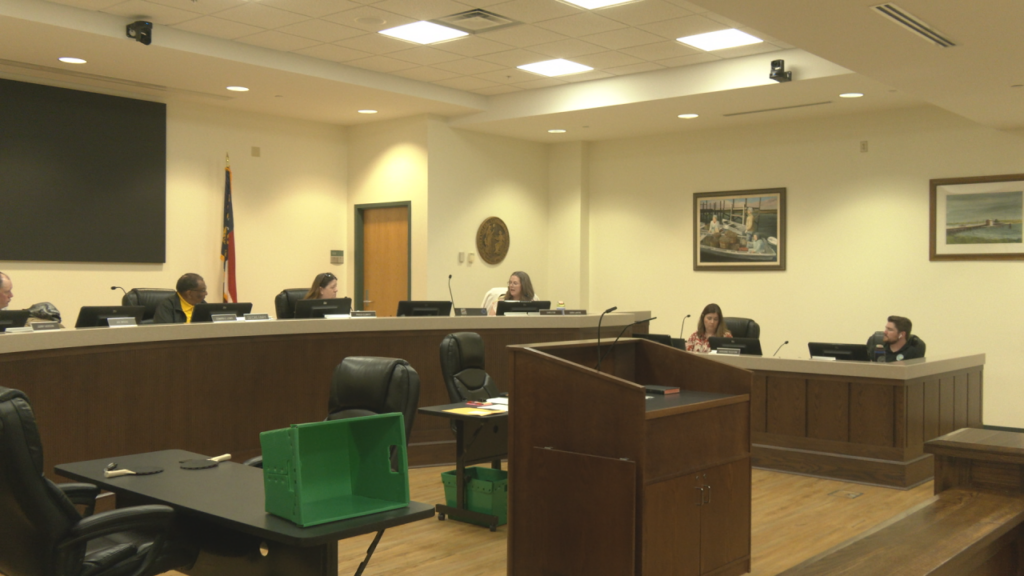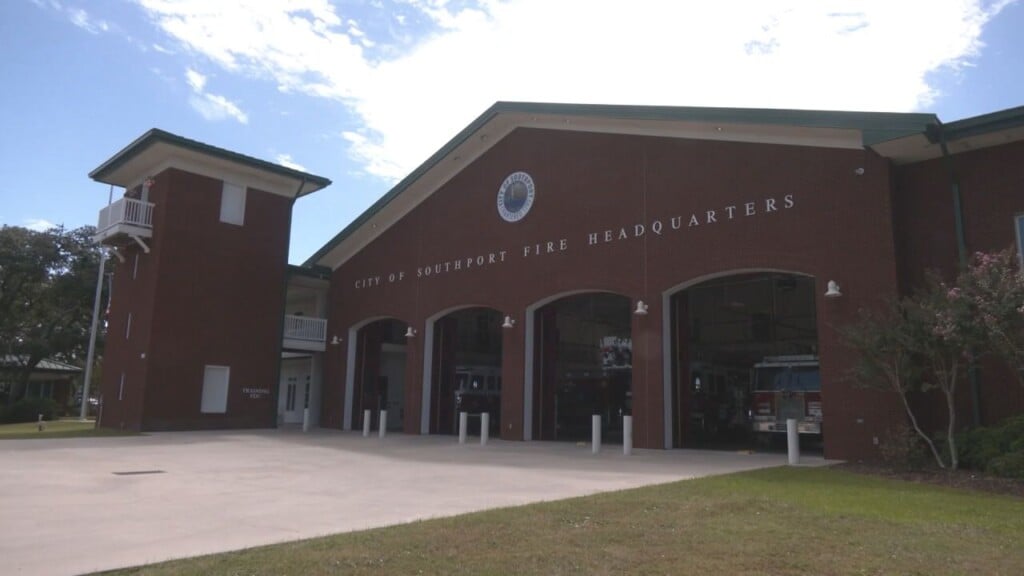Sunset Beach town administrator receives warning after requesting police department changes
SUNSET BEACH, NC (WWAY) — A town staff member received a written warning on Monday night in Sunset Beach.
Grady Richardson, attorney for the town of Sunset Beach, announced town administrator Lisa Anglin had received a written warning by town council with an expectation her performance should improve.
The announcement came at the beginning of the council’s regular meeting after several closed session meetings.
Anglin recently shared a document with a list of requests she wanted to see the Sunset Beach Police Department implement as soon as possible.
The changes included officers completing a minimum amount of traffic stops per shift and travelling a minimum amount of miles per shift.
After the town attorney and council reviewed the request it was rescinded, but not before catching the attention of the North Carolina Police Benevolent Association.
The organization shared a letter with the town ahead of Monday night’s meeting expressing their concerns . Although the request had been rescinded, a representative of the organization spoke during the public comment portion of the meeting.
“Any time you have such a quota system it does play into and effect into an officer’s thinking and how he’s going to pursue what he needs to do for that particular night or that shift or whatever,” said Steve Anthony, NCPBA representative. “When people are put into the quota situation it makes officers think differently.”
At the end of the meeting, Mayor Shannon Phillips said it was his job to serve the best interest of the citizens and he could only hoped the best interest of the citizens will be served as a result of the council’s decision.
The full letter from the North Carolina Police Benevolent Association is below.
Dear Mayor Phillips:
This writing comes to you from the Southern States Police Benevolent Association, North
Carolina Division. We represent nearly 17,000 law enforcement professionals in this state and
nearly 70,000 total throughout our association. We work to promote and improve the law
enforcement profession by providing our members with legal, legislative and other services so
our citizens may enjoy the most effective law enforcement services possible.
It has come to our attention that a non-law enforcement authority has given the police
department a list of directives to be implemented. We understand that these so-called
requirements were recently rescinded, for which we appreciate. However, our concern remains
high that this may happen again. There are many legal and safety ramifications should these
requirements have been implemented. Some of these “requirements” may be perceived as
“targeting” or “profiling,” while others are in direct contradiction to state and federal law.
Consequently, the police chief or mayor and council would be obliged to request a State Bureau
of Investigation (SBI) or otherwise legitimate investigation available to them under existing law.
If found to be so, your police officers who obeyed these directives could face serious
consequences including de-certification pursuant to NCGS 14-230 and otherwise. It would also
open the department, and the town, to possible litigation.
Other great concerns are officer safety, public safety, and overall effectiveness of the police
department. An officer on the scene of a legitimate call for service might feel compelled to rush
to make sure they have enough miles driven or vehicle stops made pursuant to the directives.
Requiring an arbitrary standard of miles driven could arguably be considered an inefficient use
of town resources. However, a required quota of vehicle stops without regard to the lawful
standards of reasonable suspicion and/or probable cause not only is an outrageous harassment of
your citizens, but a blatant violation of their constitutional rights.
These may seem like unrealistic possibilities. We can assure you they are not. Unfortunately,
through poor leadership, officers are often put in such positions. We remain hopeful that this is
not something that the Town of Sunset Beach wishes upon its police officers and citizens. To our
knowledge, council invited and/or requested many city employees to speak and voice their
overall concerns of the town. From what we understand, these concerns were validated by most,
if not all, of those who spoke. We look forward to a positive outcome for this situation and trust
legal representation will not be needed for our members and that town leaders will utilize the
broad authority available to them under state law to rectify this matter.
Thank you,
John Midgette
Executive Director/Director of Governmental Affairs
North Carolina Police Benevolent Association





